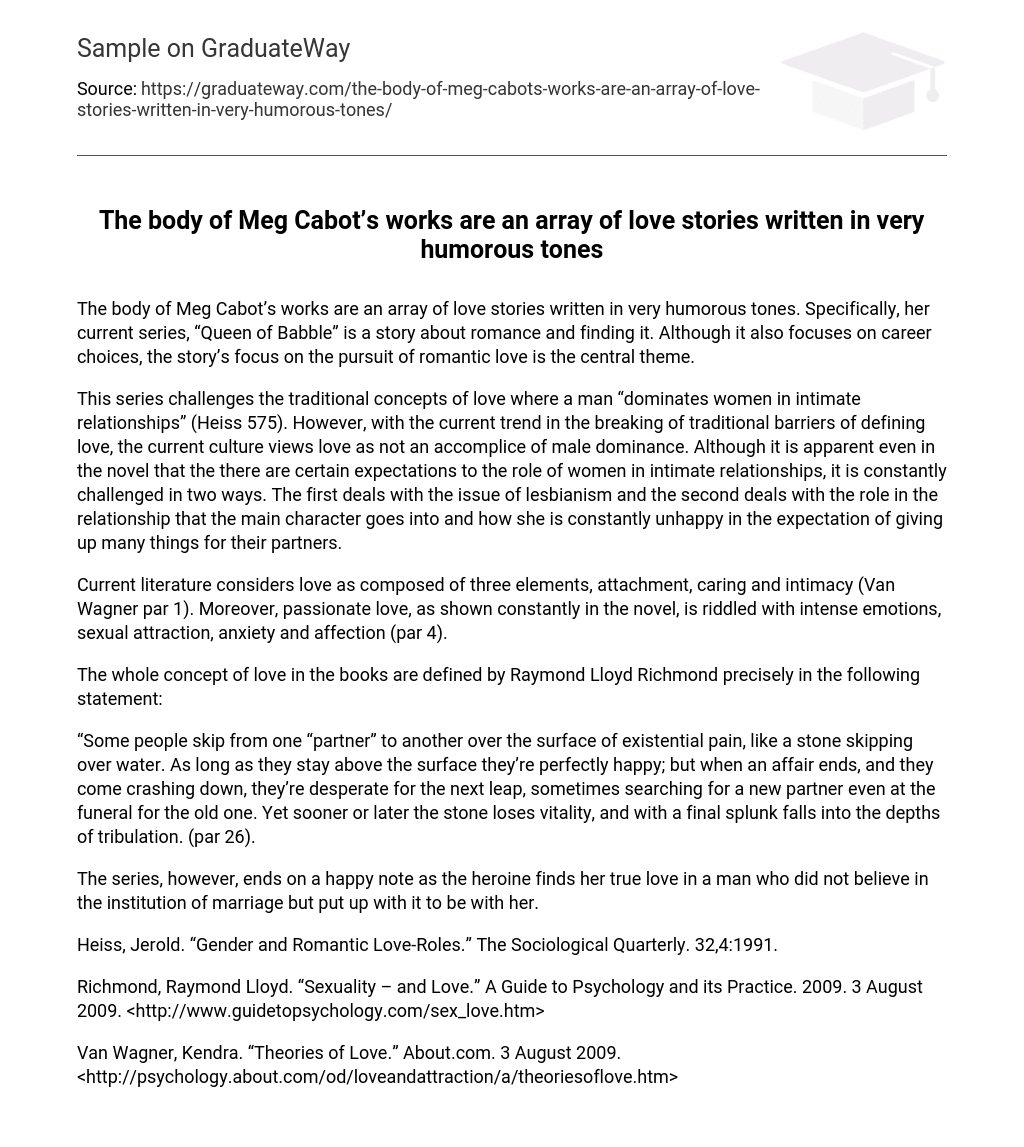The body of Meg Cabot’s works are an array of love stories written in very humorous tones. Specifically, her current series, “Queen of Babble” is a story about romance and finding it. Although it also focuses on career choices, the story’s focus on the pursuit of romantic love is the central theme.
This series challenges the traditional concepts of love where a man “dominates women in intimate relationships” (Heiss 575). However, with the current trend in the breaking of traditional barriers of defining love, the current culture views love as not an accomplice of male dominance. Although it is apparent even in the novel that the there are certain expectations to the role of women in intimate relationships, it is constantly challenged in two ways. The first deals with the issue of lesbianism and the second deals with the role in the relationship that the main character goes into and how she is constantly unhappy in the expectation of giving up many things for their partners.
Current literature considers love as composed of three elements, attachment, caring and intimacy (Van Wagner par 1). Moreover, passionate love, as shown constantly in the novel, is riddled with intense emotions, sexual attraction, anxiety and affection (par 4).
The whole concept of love in the books are defined by Raymond Lloyd Richmond precisely in the following statement:
“Some people skip from one “partner” to another over the surface of existential pain, like a stone skipping over water. As long as they stay above the surface they’re perfectly happy; but when an affair ends, and they come crashing down, they’re desperate for the next leap, sometimes searching for a new partner even at the funeral for the old one. Yet sooner or later the stone loses vitality, and with a final splunk falls into the depths of tribulation. (par 26).
The series, however, ends on a happy note as the heroine finds her true love in a man who did not believe in the institution of marriage but put up with it to be with her.
Heiss, Jerold. “Gender and Romantic Love-Roles.” The Sociological Quarterly. 32,4:1991.
Richmond, Raymond Lloyd. “Sexuality – and Love.” A Guide to Psychology and its Practice. 2009. 3 August 2009. <http://www.guidetopsychology.com/sex_love.htm>
Van Wagner, Kendra. “Theories of Love.” About.com. 3 August 2009. <http://psychology.about.com/od/loveandattraction/a/theoriesoflove.htm>





